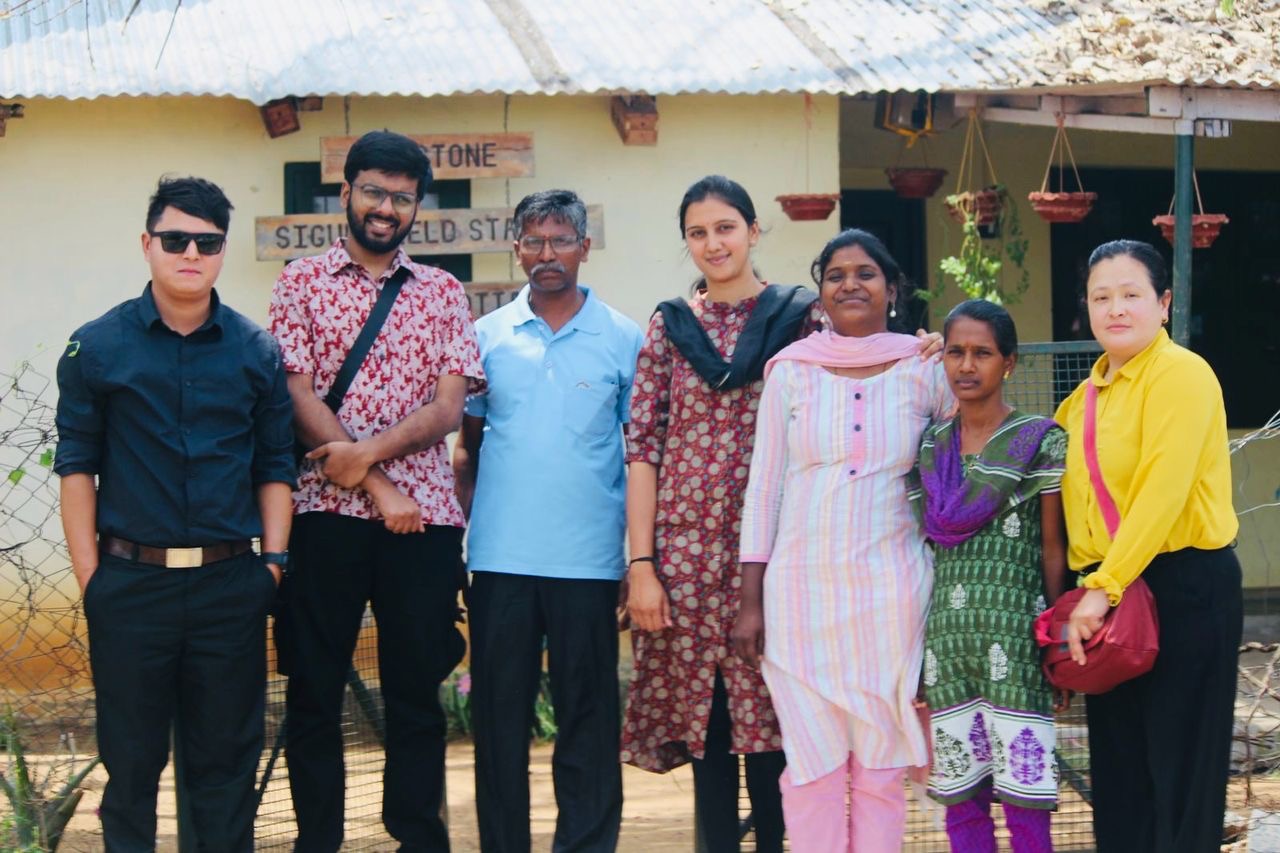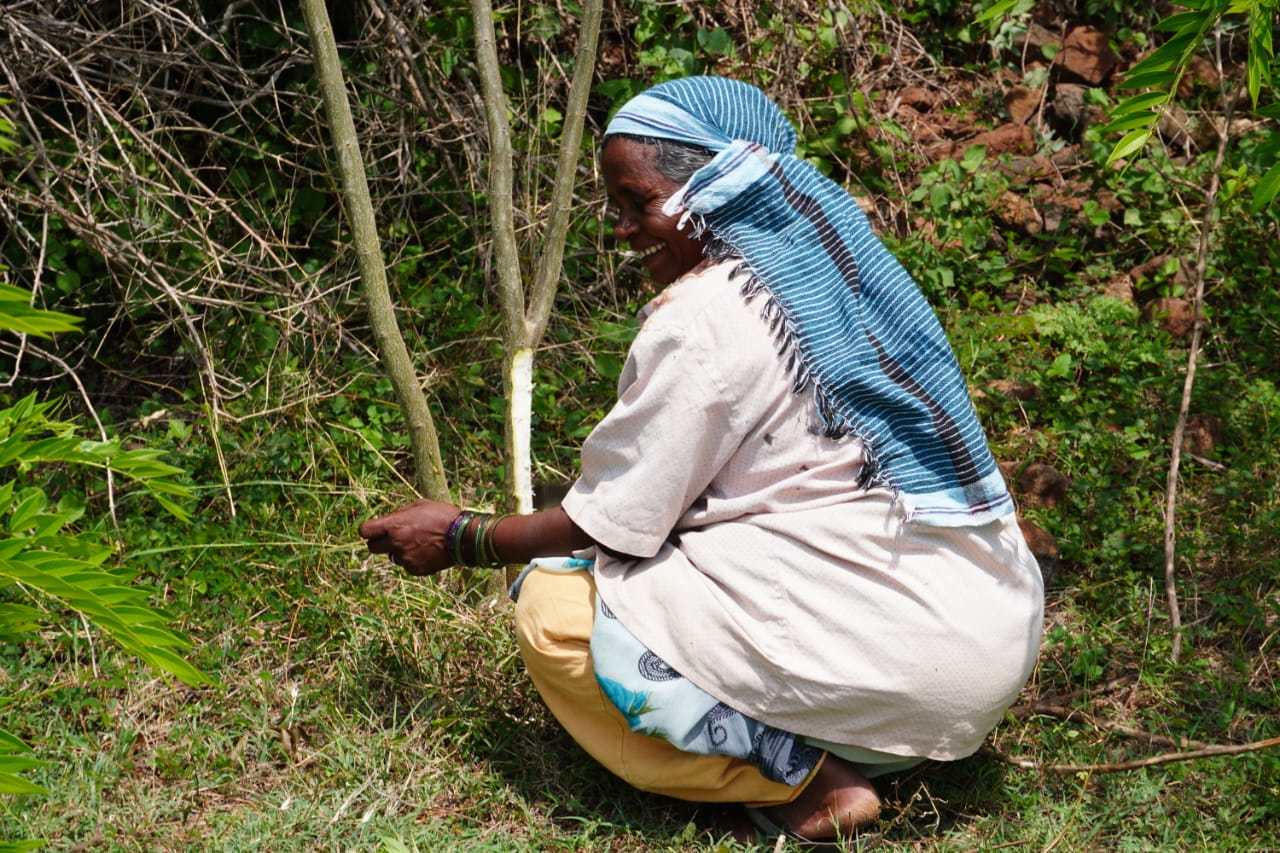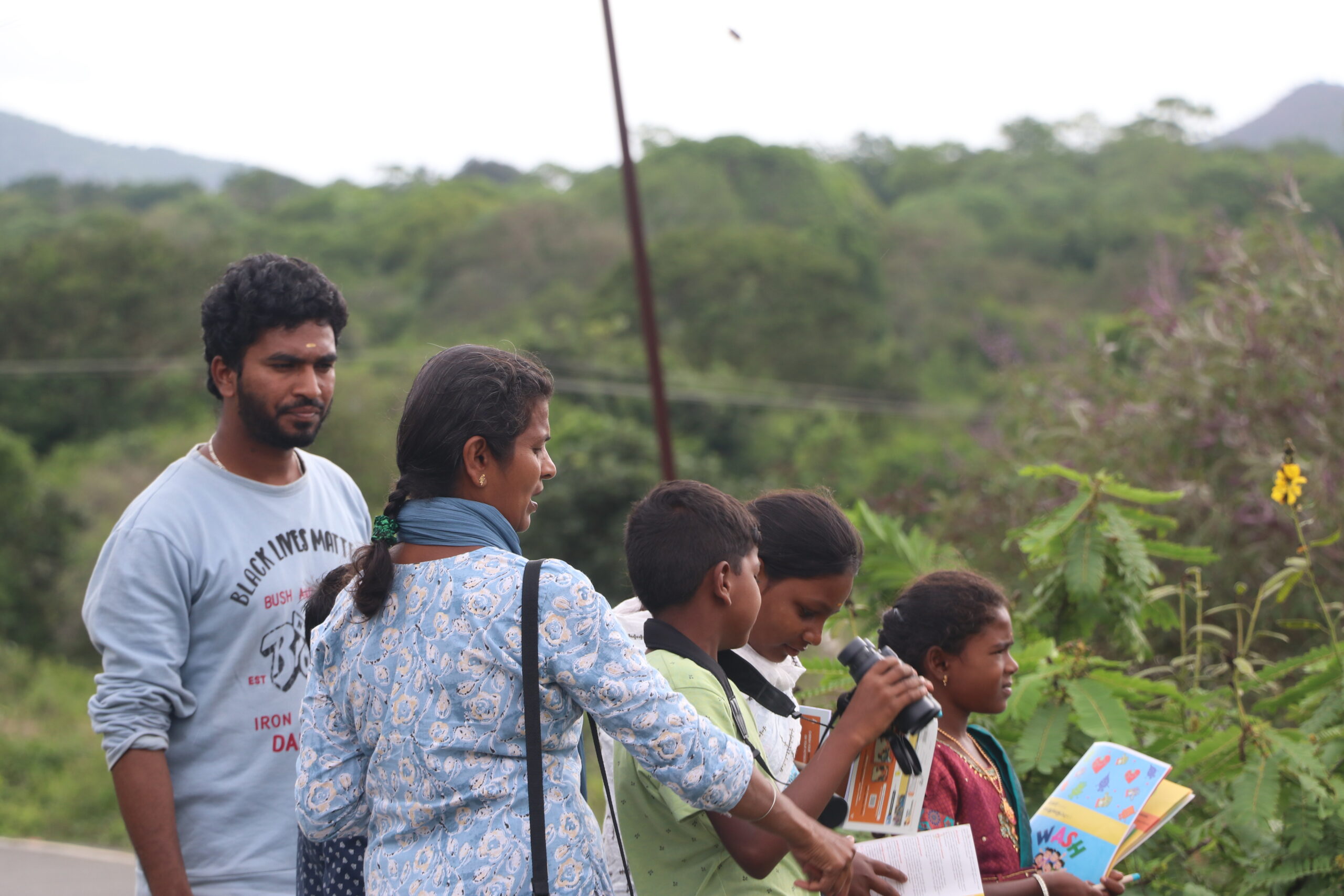By Vidya S., Climate Change
Climate Smart Schools has been in action since June 2022, promoting the mission of “Nurturing climate champions for the holistic wellbeing of Nilgiri Biosphere Reserve”. At present, it engages 10 Schools in the Nilgiris and 4 in Kerala (Wayanad and Nilambur). In these last 2 and half years, we have been able to complete 6 lesson plans in the Nilgiris and receive feedback from stakeholders through 2 consultations along with summer camps, inter school competitions and student-led projects in villages near to Climate Smart Schools.
As a next step, we held trainings focused on strengthening climate education through capacity building of teachers and other interested groups, including the Bhutan Delegation who visited us from the UNESCO education sector.
1. Climate Education training-ITK (Illam Thedi Kalvi)
We aimed to strengthen climate education through capacity building of our main stakeholders. Our first training engagement was with teachers from Illam Thedi Kalvi (ITK). This is a government-initiated scheme through which a selected teacher from the village engages students in the evening class after school–essentially tuition. Most of these teachers are trained through the District Institute of Education and Training (DIET).
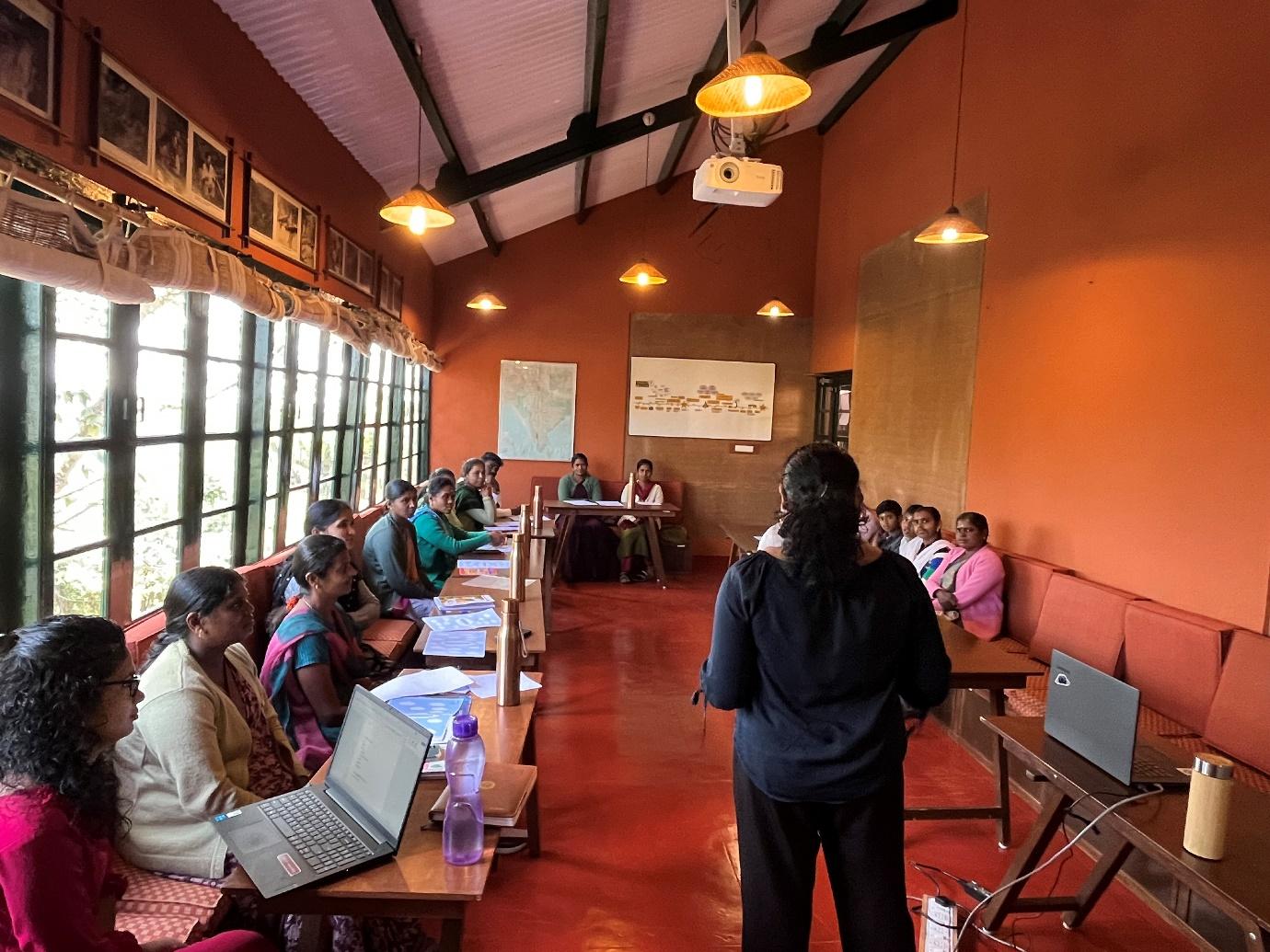
This training was held at Keystone’s campus on 1st February 2025. Bhavya and I led the session along with all our climate educators from Kotagiri (Ponnamma, Gretta, Bharathi, Manimegalai and Shailaja). Seven participants from local areas–Kairbetta, Donnington, Guntur Colony, Valluvar Colony, and Aracode–attended. To begin, we started with a mind map activity, followed by a discussion with the words that came up in the activity. We also understood that the instructors have had conversations with their ITK students related to climate.
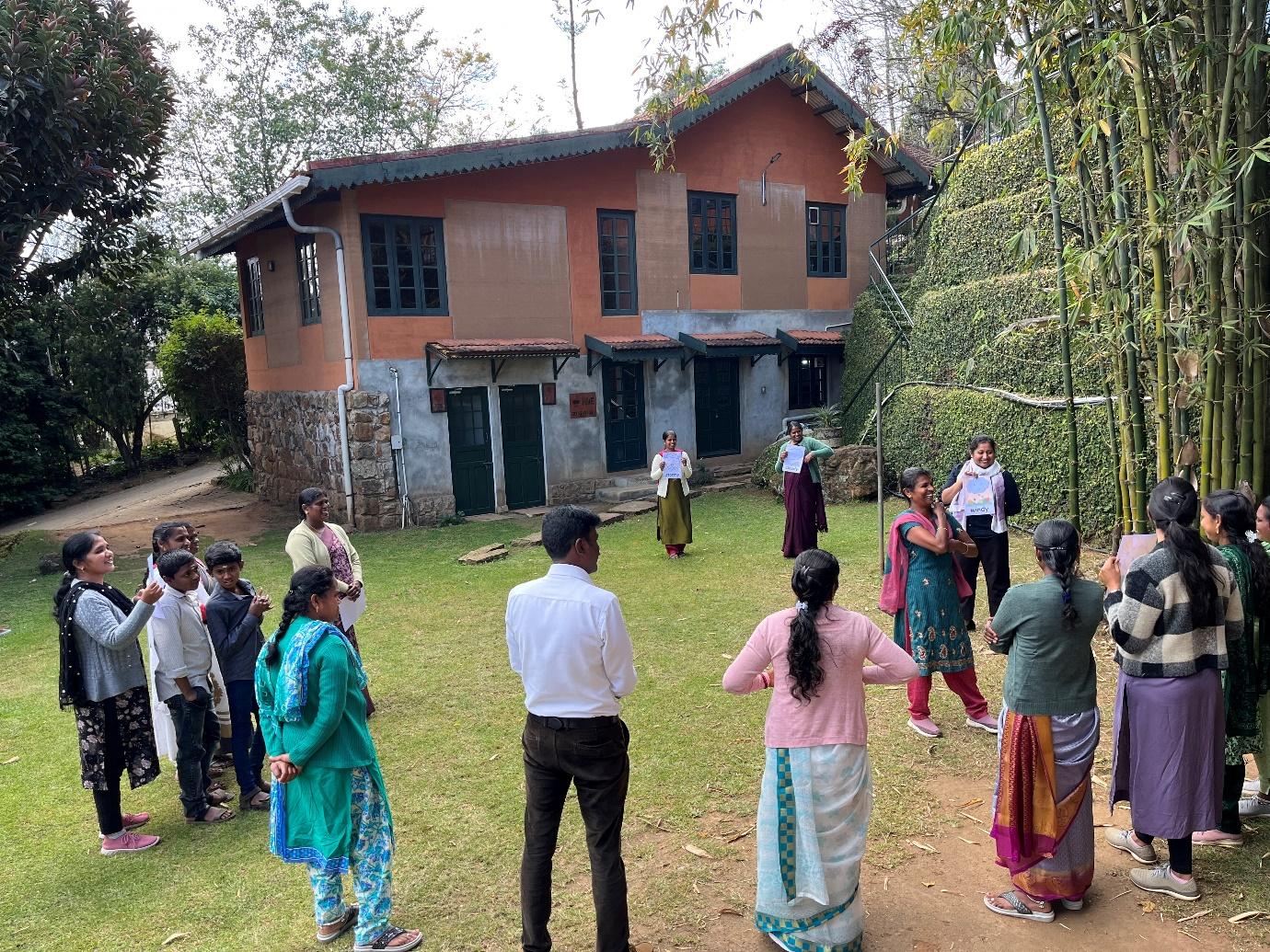
Ponnamma and Gretta, our climate educators, engaged with the participants using the first module titled “What is weather? What is climate?”. They went through the module, explaining how they engage with students through activities linking the local context. We also engaged the participants with an activity titled “Weather or climate?”, followed by a video on climate impacts for better understanding.
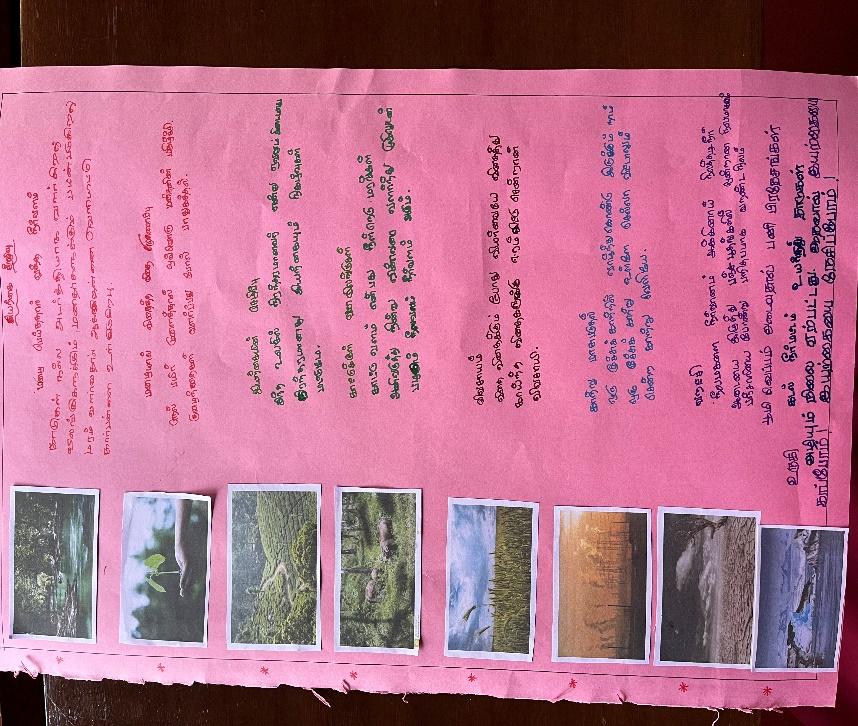
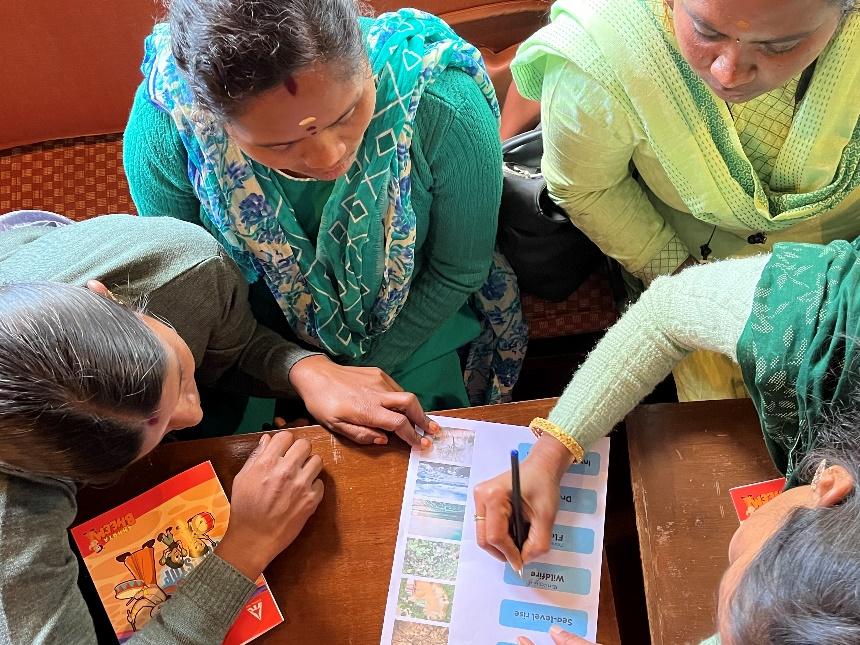
After lunch, we began our second module: “Climate Change”. Bharathi and Manimegalai, our two climate educators, engaged with the attendants, who engaged in activities called “Say your Story” and “Match the Pairs”. The attendants also presented in groups, where it helped them to understand the methodology we use in the Climate Smart Schools. To finish off the session, we ended with a feedback discussion. Some valuable feedback we received from our participants:
- I came to know more about climate change, I can now give awareness to the children. I enjoyed the story writing activity.
- We came to know many things that we were not aware of. It was a great session.
- I had no idea about the session, it’s a great start. The day went really well.
2. Training at the District Institute for Education and Training, Kotagiri
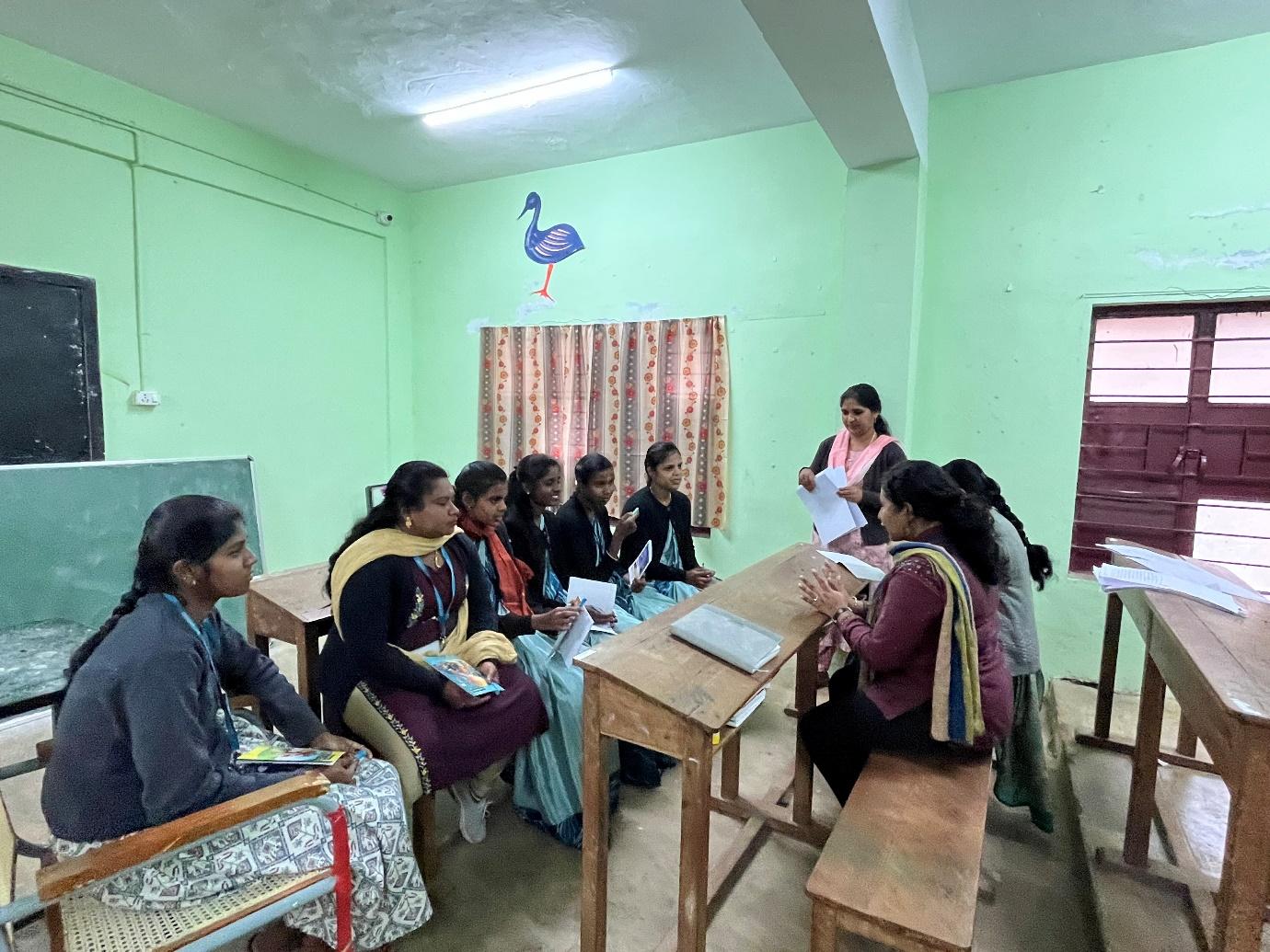
On 12th of March we conducted a half-day session on climate education training with our next young group at the District Institute for Education and Training (DIET) in Kotagiri. Seven young women from DIET attended the event, where we discussed how they could incorporate climate change concepts within the subjects they teach.
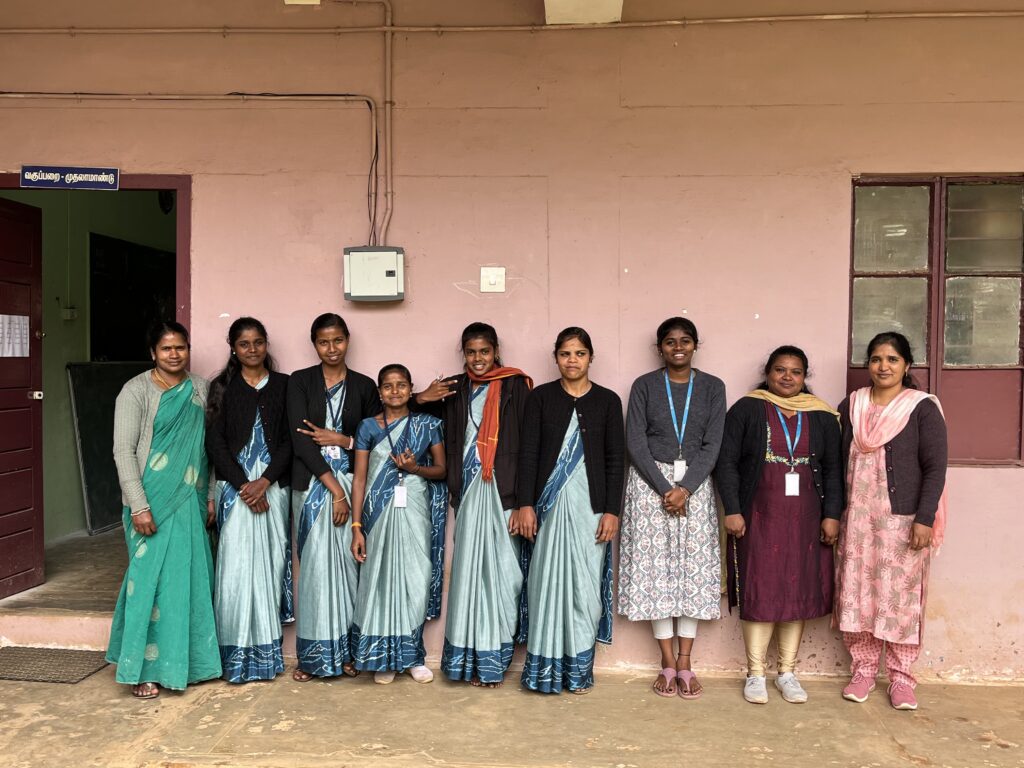
We took one activity from each of our 6 modules in order to introduce these concepts of climate change:
- What is weather? What is climate?
- Climate change
- Energy
- Water
- Waste
- Biodiversity
We believe by engaging through activities, trainees can also achieve a more thorough understanding of how to develop their own climate change curriculums.
3.Climate and Environment Education Training with UNESCO Delegates from Bhutan
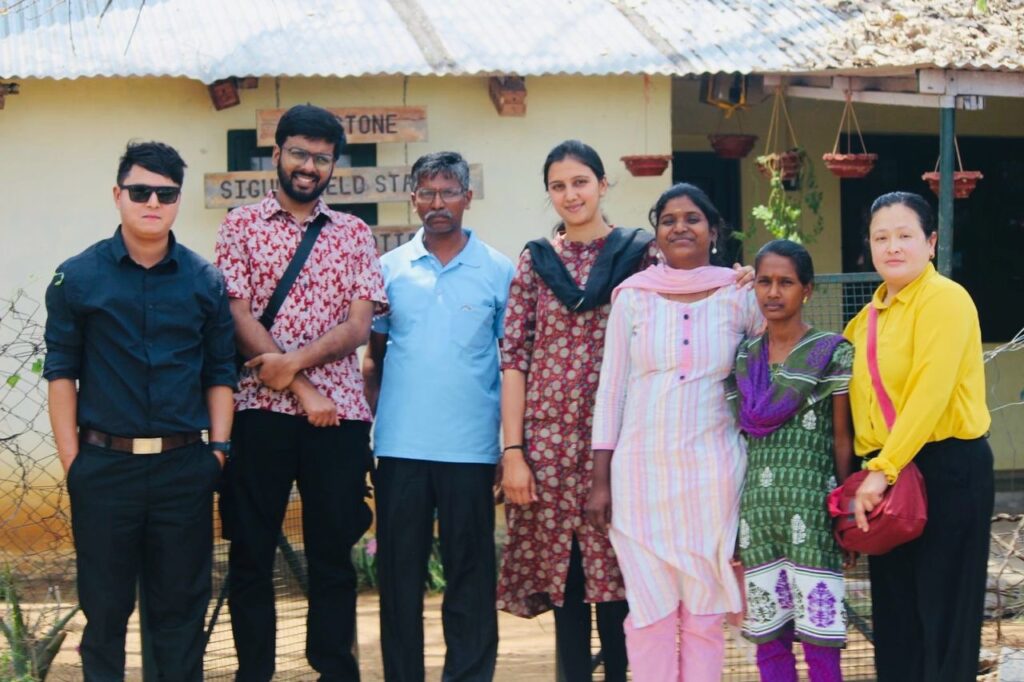
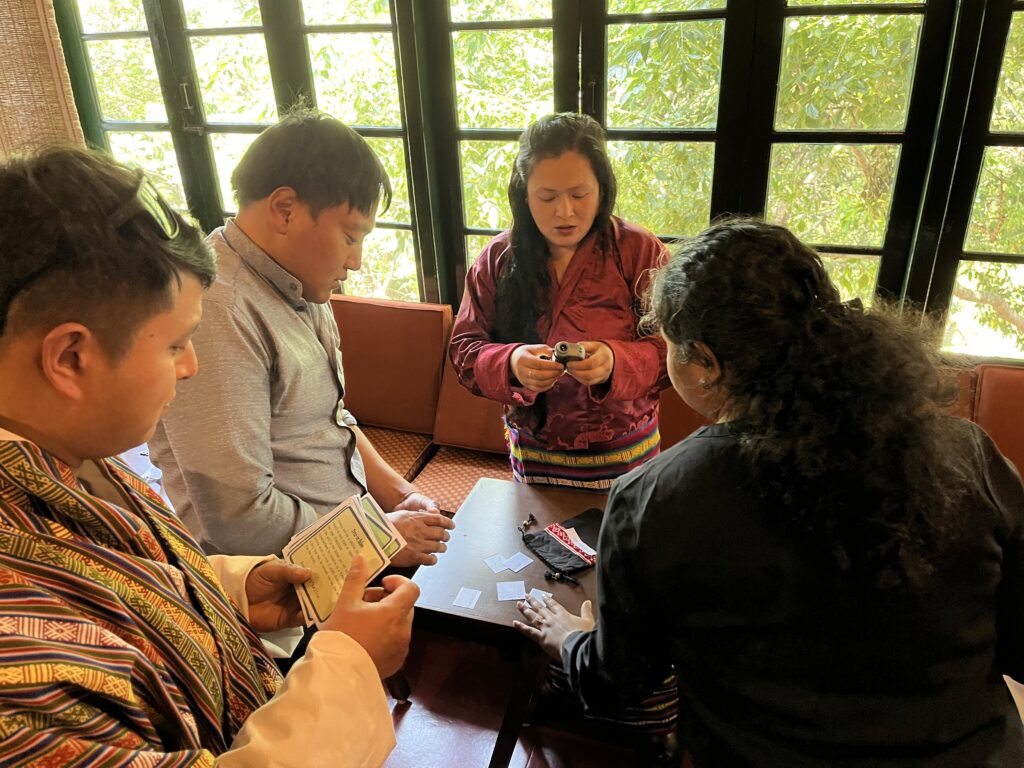
A delegation from Bhutan visited the Nilgiri Biosphere Reserve (NBR) on the 8th, 9th, and 10th of April 2024. A team of three from the Lamperi Botanical Park—Ms. Pabi Maya Monger, Mr. Barun Gurung, and Mr. Passang Wangdi—visited the Keystone campus at Kotagiri to explore how environmental education is being implemented through community-led approaches in UNESCO sites. Abhinav Kumar, Programme Coordinator from UNESCO’s Education sector, led the team. The aim of the visit was to learn and exchange ideas on how they can engage with climate change education with the students, communities, and visitors who come to the Lamperi Botanical Park.
On the 8th, Bhavya and I started with an introduction about Keystone and the work we do across the NBR. As climate change was the focus, we explained more about one of our education projects, “Climate Smart Schools.” We had a detailed discussion on how we implement the project in government schools, including the methodologies and how we incorporate the local context. With UNESCO, we also developed a toolkit (The Murmur of the Mountains) that includes all the activities from the six modules. We looked through some of the activity cards, such as weather flashcards and ecosystem quiz cards. This was followed by a Keystone campus visit that afternoon.
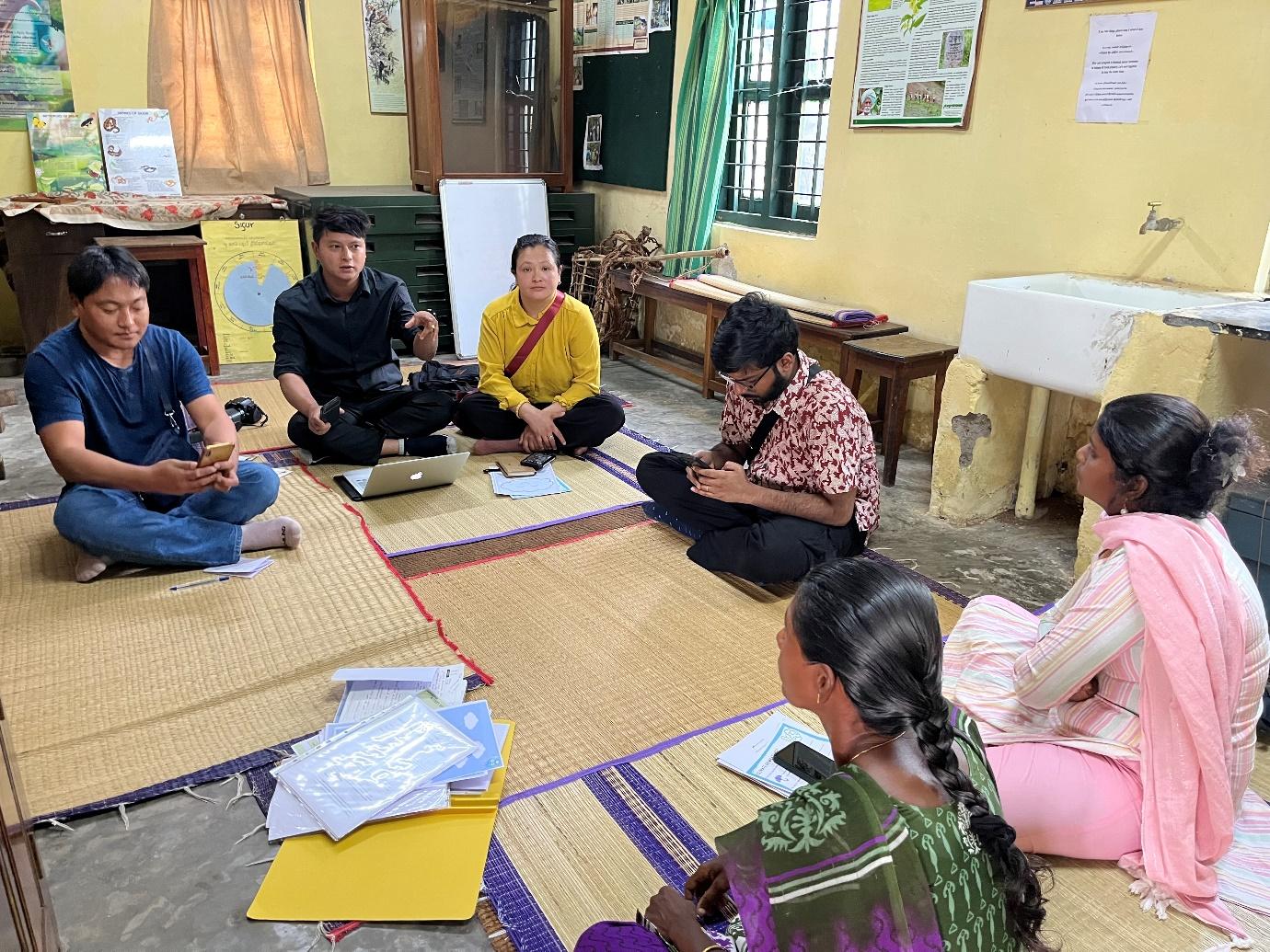
On the 9th, I visited Sigur—one of Keystone’s field centres at the Mudumalai Tiger Reserve—along with the Bhutan team. With our team of educators there, we discussed how each lesson plan is being facilitated. The students in this area live closely with nature, making most of the lesson plan examples more relevant and experiential compared to students in town areas. Responding to some questions from the delegates, we visited the nearby village of Chokkanalli, where the Village Elder Program is held. We also visited the analog forestry plots and a solar water pump intervention that was set up recently.
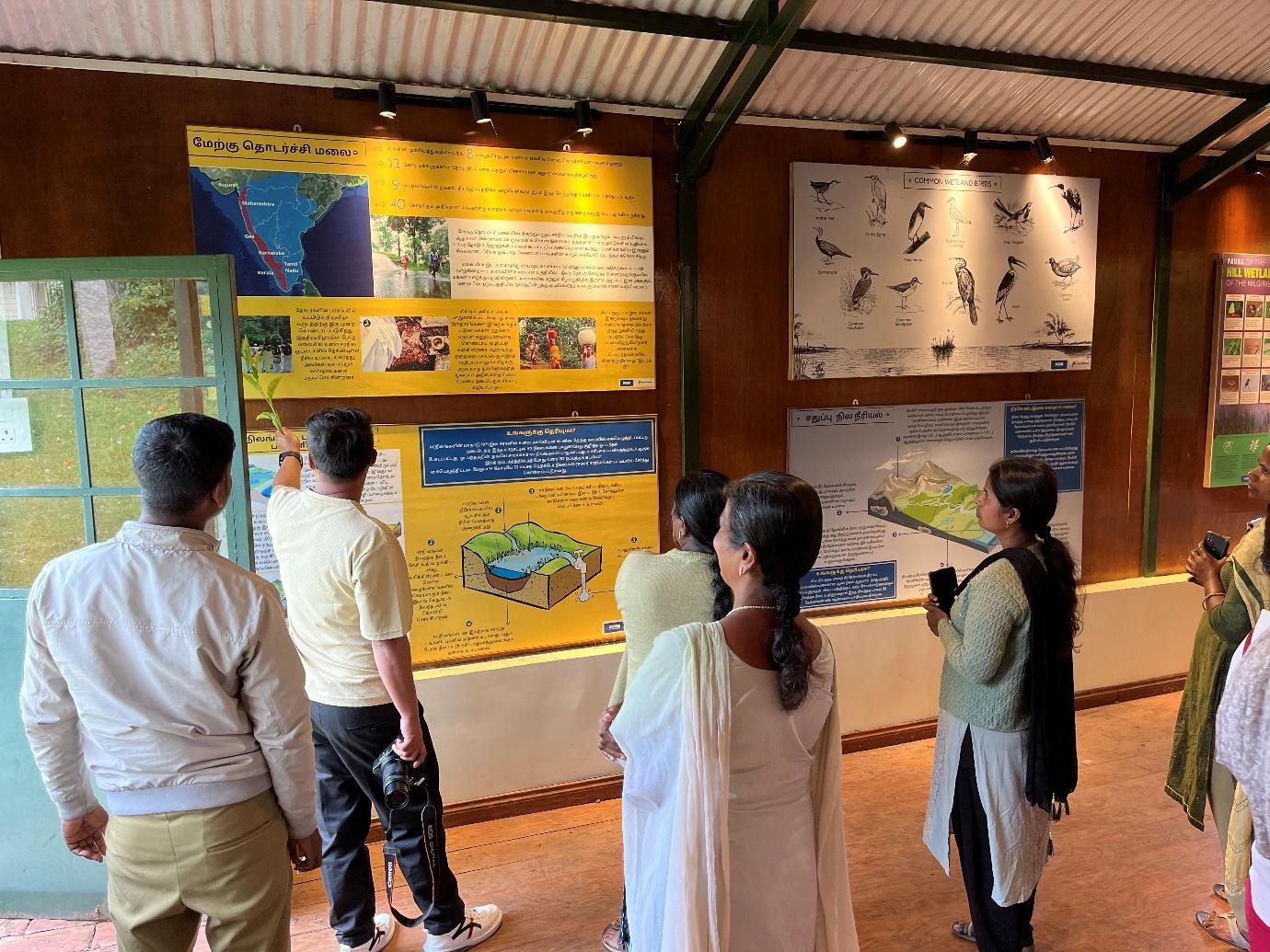
On the 10th, we visited the Wetland Park in Kattabettu, which is one of the wetlands of the Nilgiri Hills. It was great to spend time with the Bhutan team and exchange our ideas for their initiative. After three days of insights, sharing and visits, we concluded with some ideas that the team can bring back to initiate at Lamperi Park in Bhutan.

